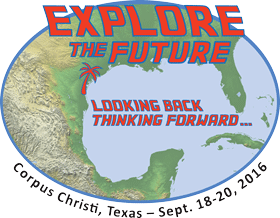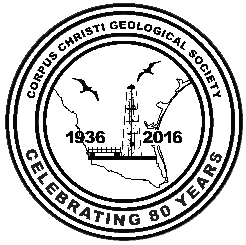Luncheons
ALL-CONVENTION LUNCHEON
“U.S. Exploration Success (L48 Onshore Focus)”
–Charles Sheppard, Vice President Exploration, EOG Resources
11:45 am–1:15 pm • Monday, September 19 • ABC Henry Garrett Ballroom A • $50
|
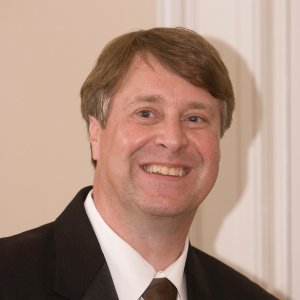
|
Abstract: The presentation will discuss key attributes for success in a complex, ever-changing business environment and volatile commodity prices.
Biography: Charles Sheppard received his B.S. in Biology and his M.S. in Geology from State University of New York at Stony Brook. He held various Leadership, Exploration, and Strategic Planning positions with Mobil and ExxonMobil for 26 years. After being vice president of exploration with Hess, he then served on the Resource/Supply Team with the U.S. National Petroleum Council in Washington, D.C. Charles is currently the Vice President of Exploration for EOG Resources. |
|
GCSSEPM LUNCHEON
“Predicting Sedimentary System Response to Human Activities: The Once and Future Mississippi Delta”
–Mike Blum, Ritchie Distinguished Professor, University of Kansas
11:45 am–1:15 pm • Tuesday, September 20 • Room 102 • $50 |
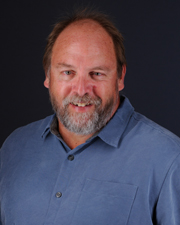
|
Abstract: The Mississippi River delta is in the midst of an environmental transformation of a scale unprecedented in United States history. More than 25% of deltaic wetlands have disappeared since 1932. The entire region is increasingly vulnerable to storm effects. This presentation provides a broad overview of recent geologic history, human impacts on the delta region, and prospects for the near future.
Holocene history of the delta region is well known and reflects filling of a glacial-period incised valley. This occurrence was followed by construction of an extensive and complex delta plain. The modern and future delta region can be understood by placing it in the context of processes and rates that prevailed during its evolution vs. processes and rates that will likely prevail in the near future. For example, mean rates of deposition required to fill the valley and construct the delta plain over the past 11–12 years are ~230 million tons/year, with the remaining supply likely dispersed to the shelf. Prior to the 20th century, sediment was dispersed to the delta plain |
| through crevasse and distributary channels, but continuous levees now render much of the delta plain transport-limited. Moreover, more than 40,000 dams now trap ~50% of the Mississippi’s natural sediment load. Total modern loads are ~200 million tons/year. This amount is less than the time-averaged rates for the storage component alone over the entire post-glacial period. The modern delta plain is therefore also severely supply-limited.
Biography: Dr. Mike Blum received his Ph.D. (1992) from the University of Texas at Austin, focusing on climatology, geomorphology, and sedimentology. He held faculty positions at Southern Illinois University (Assistant Professor, 1991–1995), the University of Nebraska–Lincoln (Assistant and Associate Professor, 1995–2003), and Louisiana State University (Harrison Family Professor, 2003–2008), then served as Research Advisor at ExxonMobil Upstream Research (2008–2014). His research interests include fluvial to shallow-marine processes and deposits, connections between fluvial-deltaic and deepwater systems, and source-to-sink analysis. Mike is now the Ritchie Distinguished Professor in the Department of Geology of the University of Kansas, where he pursues these themes through his research and teaching. |
|
AAPG DPA LUNCHEON
”Geologists, the Public, and Public Policy: What are Our Ethical Responsibilities?”
–Rusty Riese, Consultant (Retired); Adjunct Professor and Lecturer
11:45 am–1:15 pm • Tuesday, September 20 • ABCr, Henry Garrett Ballroom A • $50 |
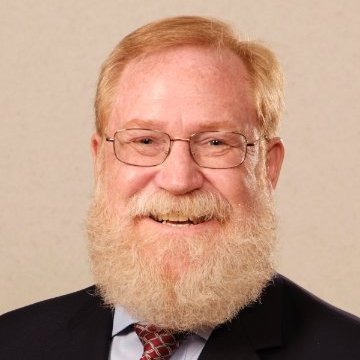
|
Abstract: In the polarizing and supercharged environment of today’s public discourse, many views are hotly contested, but three stand out as worthy of attention from geological scientists: fracking, public primary and secondary education, and climate change. All three are interconnected. Biography: Dr. W. C. Rusty Riese is a geoscientist based in Houston, Texas. He is widely experienced, having worked in both minerals and petroleum as a geologist, geochemist, and manager during more than 39 years in industry. He participated in the National Petroleum Council evaluation of natural gas supply and demand for North America which was conducted at the request of the Secretary of Energy; in the more recent analysis of global supply and demand requested by the same agency; and in the National Research Council analysis of coalbed produced waters and their management in the western United States. |
| Dr. Riese has written and lectured extensively on various topics in economic geology including biogeochemistry, isotope geochemistry, uranium ore deposits, sequence stratigraphy, and coalbed methane petroleum systems; and he holds numerous domestic and international patents. He has more than thirty years of teaching experience including twenty-five years at Rice University where he developed the curricula in petroleum geology and industry risk and economic evaluation, as well as several other courses. Dr. Riese is currently an Adjunct Professor at Rice University, Colorado State University, and University of New Mexico, where he sits on the Caswell Silver Endowment advisory board. He is a fellow in the GSA and the Society of Economic Geologists and a member of the AAPG and several other professional organizations.
Dr. Riese earned his Ph.D. from the University of New Mexico in 1980; his M.S. in geology from the same university in 1977; and his B.S. in geology from the New Mexico Institute of Mining and Technology in 1973. He is a Certified Professional Geologist, a Certified Petroleum Geologist, and is a Licensed and Registered Geologist in the states of Texas and South Carolina, respectively. |
|
LOCAL HISTORY LUNCHEON
“1919 The Storm”
–Jim Moloney, Local Historian and Businessman
11:45 am–1:15 pm • Tuesday, September 20 • Room 103 • $50 |
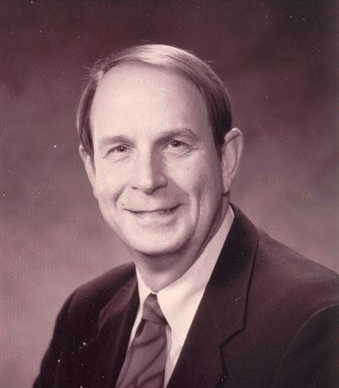
|
Abstract: A powerful hurricane devastated Corpus Christi on September 14, 1919. It left an official death toll of 284 with estimates of up to 500 more uncounted dead. Low-lying sections of the city were inundated by up to twelve feet of storm-driven tides. Downtown buildings lining the bay were destroyed or heavily damaged, while the rest of the downtown was flooded with oil-slicked waters. On North Beach, Corpus Christi’s first suburban neighborhood of substantial residences, more than 220 homes were demolished by the storm tide. Those residents unable to reach the safety of high ground were swept into Nueces Bay to battle the storm and debris for their lives. Many died, but some survived the 14-mile struggle across the bay to come ashore on the back side of Nueces Bay.
Local historian and businessman Jim Moloney will discuss the 1919 hurricane and its effects on the city and surrounding areas. A few copies of the book by the same title will be available for sale. |
| Biography: Jim Moloney is an owner of Energy Gas Compression, which rents natural gas compressors throughout the Gulf Coast and South Texas area. Previously, Jim served six years as Executive Director of the Coastal Bend Community Foundation. Prior to joining the foundation in 1998, he was employed by Gas Compressors Incorporated and Gemini Engine Company.
Before coming to Corpus Christi in 1981, Jim earned a B.S. from Rensselaer Polytechnic Institute and an M.A. from the University of Texas at Dallas.
It was in Corpus Christi that Jim began his collection of postcards and Texana from South Texas, specializing in ephemera from Aransas, Kenedy, Kleberg, Nueces and San Patricio counties. His local postcard collection has over 7000 different local postcards.
Moloney is a recipient of the Dan Kilgore Local History Award from the Nueces County Historical Society and the John Guthrie Ford History Award from the Port Aransas Preservation and Historical Association. He is the co-author, co-editor, or publisher with Murphy Givens of eight books relating to the history of South Texas. |
|
|
|
